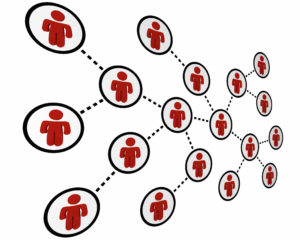Do you sometimes feel that you are racing around in your practice like a mad person and wish you had rollerblades to go faster? Too many patients coming out your ears? Booked too far out into the future and losing people? Ticking people off because you run behind schedule too often? Do you sometimes ask yourself, “Why can’t everyone just do their jobs and leave me alone to be the practitioner?” Tired of eating supper at 9 p.m. because that’s the soonest you can get home?
If you said yes, then I agree with you – you need HELP!
Why is it like that?
1. You may be understaffed.
2. You may be overstaffed and they get in your way.
3. You may have under–trained staff.
4. You may be a Type A personality or a martyr (LOL).
5. You love being the practitioner but have no training as an executive.
6. The staff may not be clear on exactly what your goals are.
7. The scheduling of patients may be inefficiently done.
8. You may be talking too long with each patient or client.
9. The layout of your practice could be wrong.
10. You may be overdue for having an associate.
11. Maybe your practice hours are not workable for your patient base.
12. You may not be delegating enough to your team.
13. Your systems of follow up and accountability may be lacking.
14. You are not booking Ideal Days.
15. Management is not your “thing”.
16. You need a bigger location.
17. You have given up trying to solve the situation and just gave in to it.
18. You have too many staff reporting directly to you.
#5 (above) is the correct answer!
The reason it is the correct answer is that every single thing on the above list can be solved by a well trained and consulted executive. You are the CEO of the business and it is a separate and distinct job from the practitioner job. In your professional training, the management side of the practice was partially or completely absent. Not even an MBA program teaches you what you need to know to run a practice at peak performance, believe it or not.
Relieve the pressure first
When our consultants begin working with an overloaded client, the first thing they do is to give the client some relief by getting their staff to support them better. Only then can the owner and the consultant start addressing the other issues one-by-one till it all comes under control.
A well-trained executive has very precise tools for management including: stats to measure performance quality on a weekly and monthly basis, delegation techniques, organizational skills, knowledge of how to schedule ideal days, leadership abilities, tools for training staff, marketing know-how, financial planning knowledge, strategic planning techniques, and much more. Overload situations can be handled and prevented by a well-trained executive who is on the ball.
Slowing it all down or getting rid of some of your patients are not the right answers. Coping and drowning are not good either. And quitting or giving up are definitely not the right answers!
Let us help with our Executive training and consulting – thousands of Canadian practitioners have already used our “uniquely you” management services.


